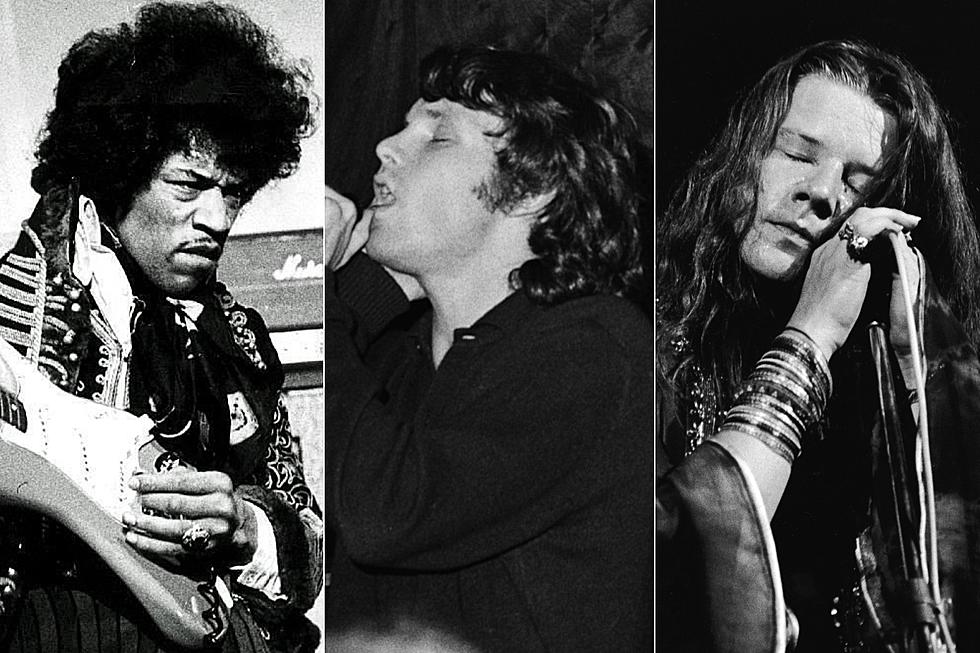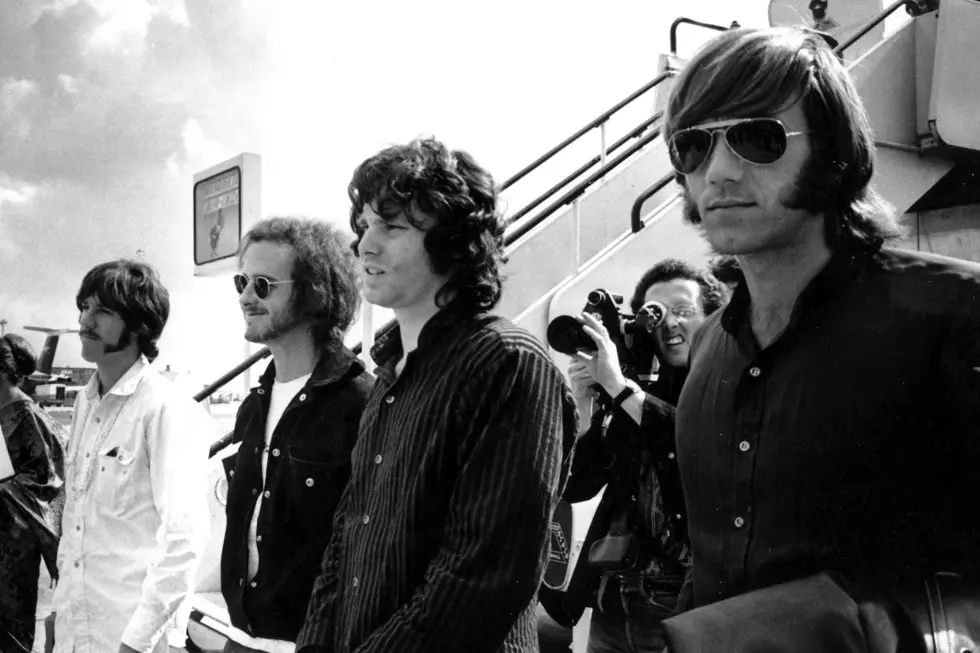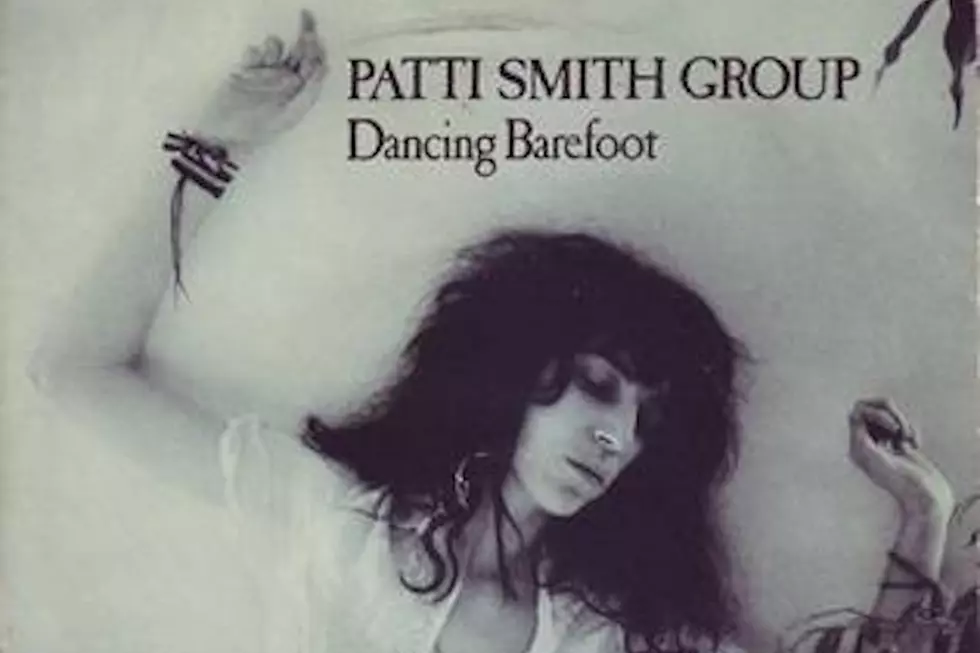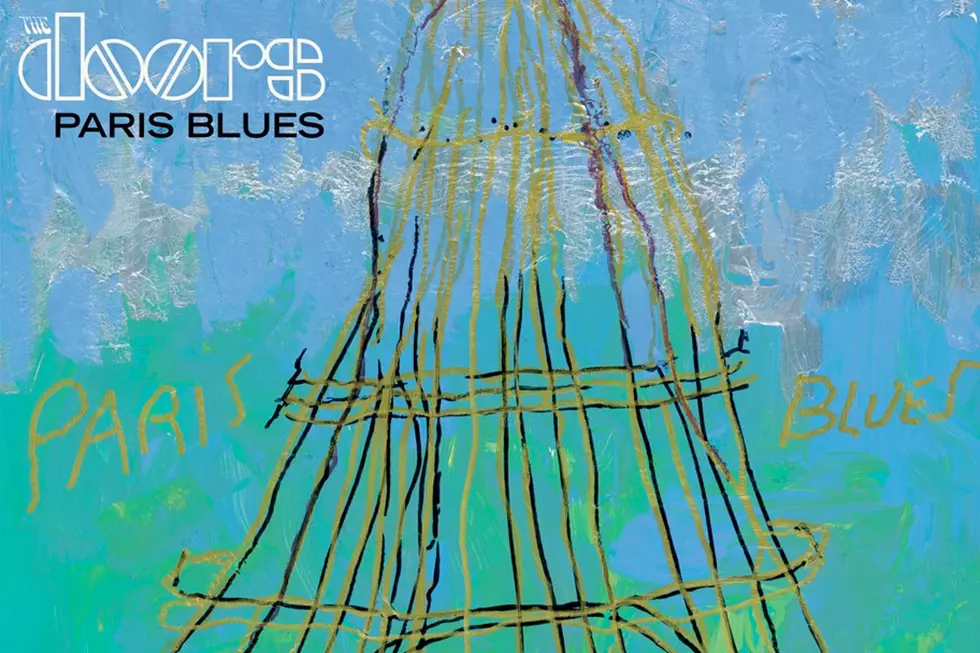
The Day Jim Morrison Moved to Paris
Jim Morrison's future with the Doors was clouded in uncertainty as 1970 faded into 1971, but all involved knew things couldn't continue the way they'd been going. Seeking a change and hoping to reorient himself emotionally and creatively, he left the U.S. for a sabbatical in Paris on March 11.
As tended to be the case with some of Morrison's more memorable decisions, the timing came at an inconvenient time for the Doors. The band had been ensconced in the studio since late 1970, working in the tracks for what would become their L.A. Woman album — and although sessions had been completed by the spring of 1971, the record was still being mixed when Morrison departed for Paris. While his bandmates might have wished he'd waited for the project to be finished, they knew he was unwell.
"In that photo you can see the impending demise of Jim Morrison," Doors keyboardist Ray Manzarek later said of the L.A. Woman cover shoot. "He was sitting down because he was drunk. A psychic would have known that guy is on the way out. There was a great weight on him. He wasn’t the youthful poet I met on the beach at Venice."
Morrison's drinking had indeed gotten out of control during the L.A. Woman sessions — he was said to consume dozens of beers in a day, and was having problems completing lyrics and vocal tracks — and at first, it seemed like Paris might be part of the cure for what ailed him. After meeting up with longtime companion Pamela Courson at an apartment they'd rented in the city, he underwent at least a partial lifestyle change, walking the streets and losing some of the excess weight he'd put on in recent months.
Old habits die hard, however, and while Paris may have offered Morrison a somewhat quieter environment and idyllic scenery, the city was also in the midst of a headline-grabbing heroin epidemic in the early '70s — and by most accounts, he soon fell into a downward spiral, alternating between periods of creativity and substance abuse. Reportedly dogged by health problems that were exacerbated by the climate, Morrison embarked on a vacation within a vacation with Courson, visiting Toulouse and an assortment of cities along the way. But soon after returning in brighter spirits, he fell back into the Parisian nightlife.
The conflicting desires reflected in Morrison's behavior were borne out on a smaller scale in front of those who later professed to know him. "When he was sober he just looked like an American student on holiday. Very quiet and shy," Parisian acquaintance Gilles Yepremian later claimed. "Once he became drunk, he was a madman."
Much of what transpired during Morrison's stay in the city has been shrouded in uncertainty over the years, with opposing accounts and diverging theories purporting to get at the heart of how he was feeling and what he intended to do next. According to drummer John Densmore, Morrison was happy with the finished version of L.A. Woman and planned to return to Los Angeles, although he hadn't yet decided when. With the Doors continuing to sell records and Morrison just a few months past his 27th birthday, there seemed to be plenty of time to figure out the details.
Sadly, he'd never make it back. On July 3, 1971, Morrison passed away, succumbing to heart failure before being found in the bathtub. The details surrounding Morrison's death have been the subject of countless investigations, with professionals and hardcore fans alike attempting to pry into the past and determine the exact circumstances that led to his passing.
Regardless of what really happened, the outcome remained the same. The Doors, after attempting to soldier on without Morrison for a few years and a pair of albums, finally disbanded — although they remained bound by the music they made during their time together, as well as the ever-expanding mystique surrounding the life and legacy of their fallen frontman.
"We don’t know what happened to Jim in Paris. To be honest, I don’t think we’re ever going to know," the late Manzarek once said. "Rumors, innuendoes, self-serving lies, psychic projections to justify inner needs and maladies, and just plain goofiness cloud the truth. There are too many conflicting theories."
Doors Albums Ranked
More From Ultimate Classic Rock









